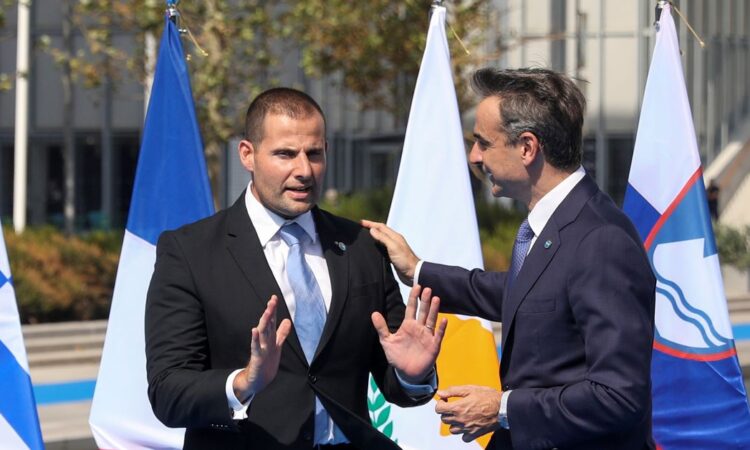
BRUSSELS, Jan 11 (Reuters) – Greece and Malta lag behind their European Union peers in freezing Russian assets sanctioned over Moscow’s war against Ukraine, according to an EU official and an internal document, as the bloc considers using the assets to help Kyiv.
The 27 EU countries have so far reported freezing some 20.3 billion euros ($22 billion) of sanctioned Russian assets, with Italy, Ireland, France, Spain, Germany, Belgium, Luxembourg and Austria each notifying more than a billion euros.
Almost every other EU country has frozen millions worth of assets, according to the document from the EU’s executive European Commission seen by Reuters.
Greece and Malta defended their work on sanctions. Greece confirmed it had notified the bloc of freezing assets worth 212,000 euros. Malta said it had frozen 222,000 euros worth, compared with 147,000 euros in the EU document.
“That is a bit surprising,” said the EU official, who spoke on condition of anonymity. “Either they don’t have much, or they are not doing their job. Or they have done something but not communicated to us even though they had chances.”
An official with the Greek authorities said the 212,000 euros exhausted all the assets Athens identified based on the EU sanctions list.
“Greece’s investment environment does not favour the inflow of Russian capital and offshore companies,” the official added.
A spokesman for the Maltese prime minister said Malta had helped other European countries seize assets such as yachts registered in Malta but physically elsewhere.
“A lot of work has been invested by Malta in support of the common European efforts,” the spokesman said, adding a fall in Malta’s trade with Russia further showed Valletta’s commitment to implementing EU decisions.
After years of wrangling with the EU, Malta said last March it was stopping the sale of passports to applicants from Russia and Belarus. The scheme gave beneficiaries full access to the EU in exchange for an investment of around 1 million euros.
SUPPORT FOR UKRAINE
More than 10 months since Russia’s attack on Ukraine, the EU might have exhausted the limit of hard-hitting economic sanctions all the 27 member states are willing to impose.
The EU’s current president Sweden said on Wednesday any new sanctions against Russia could include more individual listings.
The EU’s attention also turns this year to whether to use frozen Russian assets to help rebuild Ukraine, an exercise where an estimated 300 billion euros worth of Russian central bank assets in Europe could also be at stake.
The Commission proposed last year to invest the assets and hand over the proceeds to Ukraine. That way, the assets could be returned to their owners if sanctions were lifted.
There is little legal precedent and some member states have voiced concerns about the risk of lawsuits.
The EU is also working on making bypassing sanctions a criminal offence in member states and the EU official expected progress on these matters in time for an EU-Ukraine summit in Kyiv on Feb.3.
($1 = 0.9319 euros)
Reporting by Gabriela Baczynska, additional reporting by Lefteris Papadimas in Athens and Christopher Scicluna in Valletta, Editing by Alex Richardson, Alison Williams and Alex Richardson
Our Standards: The Thomson Reuters Trust Principles.





